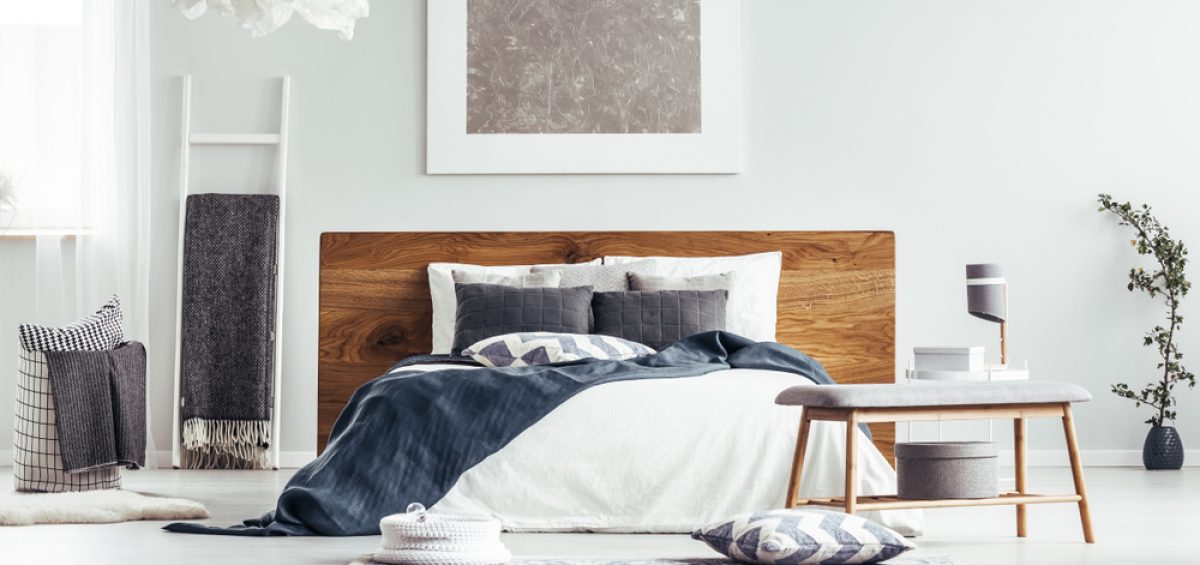Quality sleep is essential for maintaining overall health and wellbeing, but sleep-related issues are common, with many seeking effective solutions to enhance their nightly rest.
If you’re looking to achieve optimum rest, you might want to consider implementing strategic design changes to help transform your bedroom into a sleep-friendly sanctuary.
Here are five factors to consider:
Embrace the power of darkness
Exposure to light during sleep can disrupt the production of melatonin, the hormone responsible for regulating sleep-wake cycles.
To create a dark sleeping environment, think about installing blackout curtains which prevent external light from street lamps or early morning sun from entering the room. You might choose to use an eye mask which can be an effective alternative.
It’s wise to limit electronic devices as the blue light emitted by screens can interfere with circadian rhythms. Consider removing TVs and computers from the bedroom and avoid screen time at least an hour before bed. Dimming lights in the evening can also help signal to your body that it’s time to wind down.
Create a calm and relaxing atmosphere
A serene bedroom environment promotes relaxation and prepares the mind for sleep. Choose soft, muted tones like light blues, greens or neutrals, which have calming effects.
You might also want to try aromatherapy as scents such as lavender, which is known for its relaxing properties. Using essential oil diffusers or scented candles can introduce these soothing aromas into your space.
Another great way to prepare is to carve out a bedtime routine such as drinking sleep tea and reading your favourite book.
Optimise your temperature
The temperature of your bedroom can affect the quality of your sleep. To achieve the ideal environment, it’s important to maintain a cool room temperature of around 18°C.
Make sure to choose appropriate bedding with natural fibres like cotton and linen to help regulate body temperature, while layering your bedding allows for adjustments throughout the night.
It might sound counterintuitive but a warm bath before bed can help lower your core body temperature, signalling to your body that it’s time to rest.
Soundproof your sanctuary
Unwanted noise can be a significant barrier to restful sleep so it’s important to minimise disruptions where possible. You might want to use earplugs or introduce white or brown noise which can mask disruptive noises and help you to fall asleep faster.
Install heavy curtains or carpets to absorb sound and reduce noise levels within the room.
Invest in your sanctuary
Quality sleep often begins with a comfortable bed so invest in a high-quality mattress that’s supportive and tailored to your comfort needs. This can help alleviate physical discomfort and improve sleep quality.
Lastly, choose premium bedding made from natural fibres and make sure you have a supportive pillow that offers proper support to prevent neck and back pain.

